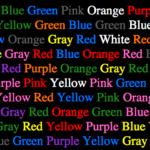Julius Malema follows a long trend of ‘bitter statesmen’, drawing from the resentment of those left behind to fuel an aggressively partisan grievance.
If modern media had come to us a few hundred years earlier, history would have been everyone’s favourite subject. Donald Trump would have been nothing compared to the infamous Borgias. Queen Elizabeth the First and her court of charmers would have been a classier version of the Kadarshians with Francis Bacon resembling a smarter, wittier although constantly rejected Kanye West. Voltaire and his fellow Renaissance writers would have been a seriously taboo version of Bill Maher or John Oliver. As fun as these scenarios sound, nothing would have beat the Estates General just before the French Revolution broke out. There is no doubt that would have looked exactly like the modern South African parliament, with the militant Jacobins wearing red hats and cursing.
The bitter statesman has become a common character in modern political drama. His thirst for justice and her yearning for equality has established the foundation of far left political movements. These revolutionaries have escalated in many different characters since the Jacobin era, yet no one reassembles the third estate’s Robespierre today better than South Africa’s Julius Malema. While the American and French revolutions marked an end to feudalism, the free market capitalism that ensued has failed to even the scales; especially now that its a global system. Various leftist movements have risen to fight the ills of capitalism just as much as the Jacobins fought feudalism in France. Since the end of World War 2, bitter statesmen have come in war and peace, from communist dictatorships, Muslim terrorists to peaceful Nobel Prize winners. One can argue that the current Civil Rights movements has transformed since the days of Martin Luther King Junior. Today it is mostly characterised by radical feminist notions, LGBTQ retaliation and black nationalism. Just like the Jacobins’ reign of terror demonised anyone who was associated with feudalism, the far left movement is not kind to people who sympathise with the right wing capitalists. Furthermore the advent of the world wide web has unleashed a cyber wildfire expressing the gruesome reality of societal discontent. The rise of Julius Malema and his bitter crew of Economic Freedom Fighters has dawned upon South Africa amidst this craze. It is a no-brainer that the state of capitalism today has led to this; it has proved to be just as bad as feudalism.
You might be thinking that this is a bit of an overstatement, could the ills of capitalism be seriously compared to feudalism? The world was equally shocked when not so long ago, OXFAM announced that income inequality is at its worst. Their studies revealed that the world’s richest 8 people (6 of whom are American) have a combined net worth as much as everything half the world population owns! The gospel of democracy and capitalism has been spread through catchy ads and an entertainment industry that encourages consumerism. These popular mediums for the status quo have competed with far left movements for popularity and the various activists are widely shunned as angry, hateful low lives as compared to the happy easy going, Gucci wearing celebrities that Hollywood produces. The reality of income inequality in South Africa however has saved Julius from the popularity contest.
There is so much wrong with the state of capitalism in South Africa. The white minority still holds most of the country’s wealth while the former victims of apartheid are the workers and consumers of the day. Working conditions in South Africa are similar to the industrial age kind of exploitation with certain companies drafting working contracts that facilitate for 16 hour work schedules for minimum wage. The bitter statesman of the day has diverted from his forebear’s stance. Nelson Mandela advocated for racial reconciliation after apartheid, but he failed to address the problems concerning income inequality and land redistribution. There is no doubt however that his gospel of peace in an Utopian rainbow nation brought a breath of fresh air from the country’s dark past. His legacy as a revolutionary was that he put his bitterness aside and became the friendly statesman. Julius Malema on the other hand, realised how losing this bitterness cost the struggle. He has worn it like armour and emerged as the ghost of Mandela’s youth. His campaign has been lad with racial nationalism, justifying his bitterness towards white capitalism with the black people’s plight. The racial stance and identity politics has been polarising, even amongst victims of apartheid, some of whom are not black. The Coloured (mixed race) and Indian South Africans are not too sure about this unapologetic Xhosa black nationalist. A great number of them can however relate to his bitterness.
The race issue is one thing Malema has failed to handle right, which makes him less popular as a revolutionary as compared to Nelson Mandela. He has however managed to tackle the elephant in the room, and this is the reality most South Africans can relate to. He has raised concerns about how the current arrangement has non white South Africans at a disadvantage, with more than half the population; most of which is black, living in poverty. The uneven distribution of resources and negligence of less fortunate communities by the government violates people’s rights to life, health, food and education. He has expressed the need to commence land redistribution without compensation; a radical measure that reverses the colonial arrangement at limited cost. The AfriForum; an organisation protecting white South African interests has argued that land redistribution without compensation is a violation of property rights. South Africans will have to prioritise between basic human rights that the current arrangement deprives them of, and property rights that they wish to protect. The bitter politician has rose to represent squatter camps and crowded townships where government’s service delivery is compromised.
Modern media keeps us on the loop of this current political drama. The unfortunate part is that the Kadarshians will keep the masses away from the news, keeping them on the loop with the current consumer trends. Ask your average South African “Slay Queen” from the township what she thinks about the rising far left movement in South Africa. Despite working long hours for a minimum wage that will be swept away by twenty different debit orders, she will shrug the “madness” off as a distraction to her perfect world where she strives to buy a Gucci purse to pose with on social media with the caption, “African Queen!”







